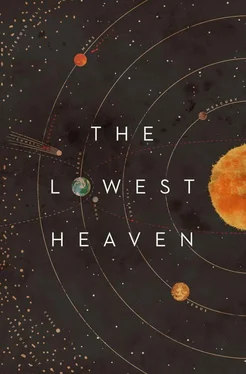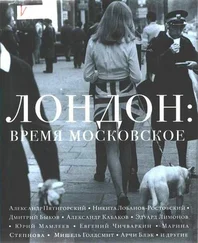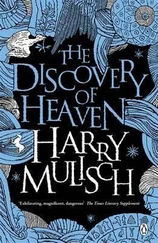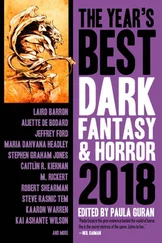The pockmarked face of the moon grew closer, whiter. I thought the surface would become less stark, but it remained without colour, and without grey shades; it was all white planes and black shadows. I was dazzled◦– I blinked◦– I did not blink, having no eyelids. Then why was I dazzled, having no eyes? I found that if I opened every part of myself to perception, I could see-perceive with other-eyes, and look straight at the sheets of lava, shiny as a japanned table, which had previously blinded me.
No living world, this. No greenery in the crevices and crevasses (and no plants of other colours, either, Mr Wells). Severity everywhere in form as well as palette: sharp lava fragments piled like spillikins. I saw soundless avalanches rush down from the summits of volcanoes. I tried to listen with other-ears, and heard instead a great growling, like arguments shouted between nations.
Some of the lava and stones of this uninhabited land resembled ramparts and amphitheatres. I thought it an unsettling coincidence. Then I couldn’t be sure: soaring over one plane, I saw beneath me a shape like a fortress, perched over a riverbed. I thought I saw arches, pillars, fallen columns, an aqueduct, even? But perhaps they were spat out by the thousand local Etnas, or whittled by lunar hurricanes.
I longed to know but I found I couldn’t stoop or stop. I was exhausted. As soon as my efforts slackened, I felt, attached to me, a sort of silver cord that I somehow knew connected me to my fleshly body. It tugged me like the kind hand of a good friend on my shoulder: Come along, old boy, you’ve had enough.
I flew home. The moon was plucked from me, dwindled, became a coin in the sky.
The silver cord hauled me in. A good thing, too, I thought, as I approached the rooftops of Paris: I’d not remembered where in the city I was lodged.
Snap! I woke breathless and chilled. In my murky brown bedroom, the memory of that austere landscape was like a slap. It had been the most terrific experience of my life.
“Sounds like Verne,” Christopher said, ripping open a pastry.
“Like what?”
“That story by Jules Verne. Griffiths read it to us, at a picnic at college. In translation, of course.”
I nodded. I blew across a bowl of hot chocolate. I was enjoying, supremely, being back in my body. Knowing it as only one of my bodies. It took me a while to think through the implications of Christopher’s suggestion.
“Without eyes…” I began.
“What?” I’d interrupted him.
“Sorry◦– without my eyes, when I was travelling, I was perceiving through some other sense.”
“And?”
“I was perceiving things too far from my own experience for me to understand them. So I translated them into familiar forms. Perhaps with practice, I could see more truly…”
“I expect you were lucid dreaming!” he cried. “I’ve always wanted to do that.”
“What’s that?”
“It’s a dream state…”
“One travels in a dream state?”
He rolled his eyes.
“One thinks one travels. You make things up, you direct your imagination while you’re asleep.”
He was impressed how much I’d controlled my dream state, how far I had pulled the wool over my own eyes. He urged me to “travel” again.
But there were other things to occupy me. We had to find a flat, Paris demanded to be explored. And my cynical Wildean side sneered: really? Cities in space? Moon-men? Who are you, to explore the stars? Until the memory of my trip crumpled my chest like the end of a love affair.
I never had a firm opinion as to whether Christopher or I was right. But I didn’t travel again.
After a year, he was calling himself Christophe. I slunk back, treacherously, to England. “Oscar isn’t even released from prison, yet!” objected Christopher. But I missed Charing Cross. Christopher had made friends with French men, but I hadn’t: my sense of universal brotherhood had ebbed, and I couldn’t manage the vowels.
I thought, often, whether it would have been different if I’d made my speech on the train. If I’d allowed sincerity to conquer cynicism. I became, without meaning to, cold and distant. I was on a fixed path, unable to intersect with warmer men.
Christopher forgave me enough to take me, once or twice a year, on a trip. Each expedition had a fraction of the exhilaration of our Parisian exile: trunks packed, the funnel of a boat steaming. We looked for communities of Uranians in Sweden, India, Turkey, and (endlessly) Greece. My feelings of guilt towards my friend were as hefty as my luggage.
So now, as we found our cabins on the Carmania setting out for America, I bowed the knee to him again.
“I’ve forgotten to bring anything to read. Could I borrow something from your excellent little library?”
He drew out a pile of books. Amazingly, amongst them was the volume from our French trip, on astral travel. For sentimental reasons?
Once more, the book drew me in. I went to my bed as eagerly as a bridegroom. I would slip the bonds of earth. I would touch the face of heaven.
It wasn’t my wrath at Mr. Wells alone that set my destination. I knew◦– I believed◦– that I had once travelled to the moon. I could reach, surely, for our nearest planet?
A moment of hyperawareness. My itching nose. The crisp sheets.
Then, up! This time, I was flying in daylight. The ship underneath me was a white toy on a blue sea, and when I climbed◦– and I did so confidently◦– the stars came out. Towards the great white face of the moon and past it. Its dark side was the first thing that really frightened me: craters the size of countries, with shadows so dark that I hallucinated things that squirmed and sparkled.
I marshalled all I remembered from Christopher’s small book and located the Red Planet. A red dot like a hot star. I set my course towards it and leaped.
And Wells was wrong! He was wrong entirely. I didn’t even need to get close enough to see the surface of the planet before I knew he was mistaken. The red of Mars wasn’t caused by a weed, or any kind of plant. Instead, it was◦– as far as I could tell◦– a property of dust. A hot and howling crimson mist, caused by ceaseless sandstorms. Like the haunted landscapes in the largest rubies: demon-chasms, their walls collapsing in, but never filling them, as debris is always boiling up out of them.
I sought a quieter spot: the long canals of Mars. I swooped down and hid in their cool, geometric shelter.
And there were others there with me.
They were near to my shape, seeming to be seated in a ring, but on no visible ledges or stones. I thought them inhabitants of Mars, at first. They were not tripod machines, nor had they oily tentacles◦– they were beautiful! Then I saw, trailing behind them, the silver thread that could take each of them home (so much more flimsy than it felt when embedded in one’s own guts). Then I knew them to be thoughtforms, visitors like myself, gathered here. Possibly they lived too far apart on Earth to meet through ordinary means, or perhaps they wanted secrecy. I drew close and, under the howling of the storms, I heard them speak faintly to one another.
They had come to Mars to plan war.
last raid of the campaign, guys
need to synchronise
hell yes
mcneill sets up a bombardment
doing it already
ellis, you send in your divisions to draw the initial attack
why mine
because we all had heavier losses than you last time
yeah, because I’m not an idiot
I had thought war would sound grander.
we agreed it already, ellis
your divisions soak up the hits
ellis you agreed
Читать дальше












